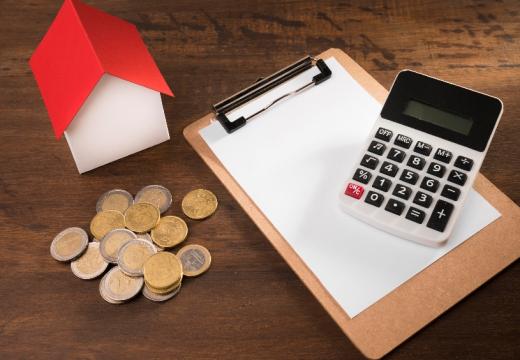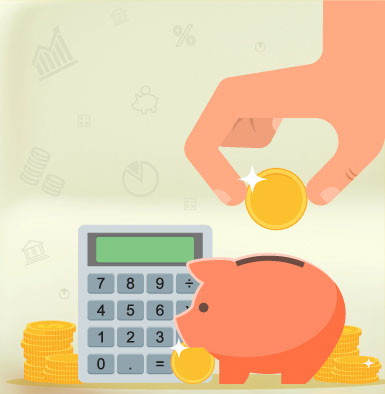How Much Rent Should I Charge? Setting the Right Rent In Ghana
How Much Rent Should I Charge? Setting the Right Rent In Ghana

Setting the rent for a rental property is the most difficult aspect of any property investment in Ghana. Because when you charge too little, you'll leave potential rental income on the table. Charge too much, and you risk scaring away good tenants and having your rental property sit vacant in Accra.
It is always a tightrope walk for landlords in Ghana—balancing attracting great tenants with maximizing their rental return. The question, however, is how much rent should you charge to avoid those two instances above? So that you aren’t the next landlord in Ghana to fall victim to rental pricing numbness.
Together, let’s uncover how to set the perfect rental price for your property by first looking at the key factors influencing property value in Ghana.
Key Factors Influencing Property Value in Ghana
A home's value is like a magic coin, it has a direct effect on the rent price. And what sets a property’s value? There are four key factors:
1. Location
The rental market hinges on where tenants want to live. A luxury apartment in a vibrant neighborhood in Accra means a higher rent, while a similar space in a quieter area might fetch a bit less. It is a simple equation with big consequences. Setting the rent is like striking a deal with the housing market—find the right price, and both you and the future tenant will live happily.
2. Market Condition
The real estate market in Ghana is like a living creature, always changing. Sometimes, more people are looking for rentals than there are places available, and prices shoot up (landlords market). Other times, there might be a few empty apartments, and landlords have to be more flexible. Understanding the market is key. It's the secret language that tells you if rents are likely to go up or down.
3. Rent Increases With Property Size and Rooms
The size of your rental property directly influences its worth. The bigger the apartment in Accra, the more rent you can potentially charge, like a giant block fitting perfectly and filling the space. But size isn't everything. Sometimes, smaller spaces in high-demand areas, like East Legon and Cantonments, can fetch a higher price per square foot. It all depends on what the renters in your area are looking for. For instance:
- A larger 3-bedroom apartment in Accra will fetch higher rent prices than a 2-bedroom apartment equivalent. Why? Accommodating more people or providing space for a home office can drive up perceived value and, yes, the amount of rent you can ask for.
- There’s a caveat to the number of rooms and size rule. In a neighborhood with lots of young professionals, prioritizing location over space and opting for smaller rentals near work or desirable nightlife, studios and 1-bedroom apartments will be in fierce demand. With high demand outpacing supply, landlords can be more selective with prospective tenants and command higher rent prices.
4. Crime and Safety
To some renters, the rent isn't just about bricks and mortar; it is the price of peace of mind, a haven worth every cent. After all, a good night's sleep and a worry-free commute are priceless treasures, and a good neighborhood should offer just that. The crime rate and overall safety of an area influence its property values. Properties located in neighborhoods with low crime rates and a reputation for safety tend to have higher property values.
The Steps to Determine Your Rent Price in Ghana
Setting ideal rent prices isn't guesswork. Conduct a proper rental market analysis and make data-driven pricing decisions to enhance your investment property's profitability.
1. Research Local Rental Rates
The first step in fixing a rental price in Ghana is to compare similar apartments, analyzing every detail— size, location, and amenities. Slowly, you'll begin to see the rental trend in the area, revealing the sweet spot where you could find the perfect rental price.
This will guide you in setting a price that attracts ideal tenants while keeping your financial goals within reach.
2. Analyze Current Market Trends
Rental markets in Ghana aren't static. Take a drive around your neighborhood. Whenever you see lots of empty apartments with desperate landlords waving those ‘For Rent’ signs? That's a sign to hold off on raising the rent. But if you see happy tenants everywhere and those signs are scarce, well, that might be your chance to adjust the price a bit.
Ask yourself, What brings home renters to the area? Job growth? Night clubs or major employers? These are some of the factors that point to increasing tenant demand and, with it, your ability to price more confidently.
The goal isn't just setting a rental price, it is about getting it right, reading the signs to navigate the ever-changing rental market, and securing a financial future, one strategic move at a time.
4. Look Into Rent Control Laws
Landlording in Ghana has its perks, but a dragon is guarding the treasure – the rent control department. There is a limit on how much you could increase the rent and a ceiling on your financial dreams, which are all captured in the rent control laws in Ghana.
If you neglect rent control regulations, you risk getting fines or even criminal lawsuits. Do your research now to set expectations and protect your rental investment property in Ghana.
4. Calculate Operating Expenses
Many new landlords in Ghana focus on their monthly mortgage payments and property taxes alone. But that usually results in financial surprises down the line because many seemingly small expenses, like utilities, maintenance costs, and vacancy periods, can add up quickly and erode your returns.
Don’t ignore anything, calculate everything, including utilities, maintenance, property management fees, insurances, taxes, and vacancy periods. This will help you make informed decisions about rent prices, maintenance needs, and future investments.
5. Evaluate Property Amenities and Features
Okay, it’s time for an honest inventory of your property. It is very important to understand what makes your property more appealing than your competitors. Think beyond square footage—analyze the amenities and features that make home renters go.
Just make sure you're realistic about what tenants in your market truly value. While a swimming pool looks great on paper, the upkeep (and liability) costs may outweigh the rent price.
6. Estimate Rent Price With Accuracy
Now that you've gathered all the clues – the market data and your property's unique features – you can use your intuition to pinpoint the perfect rent price of your property. You could calculate the rent price using the 1 percent and 2 percent rule of thumb. Here’s how it works:
- 1 percent rule: This rule indicates that the monthly rent should be at least 1% of the property’s purchase price.
- 2 percent rule: The 2 percent rule also dictates that monthly rent should be at least 2 percent of the property’s purchase price.

 French
French




